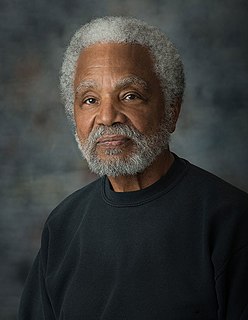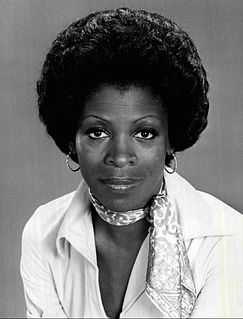A Quote by Camille Paglia
There is no gay leader anywhere near the stature of Martin Luther King, because black activism drew on the profound spiritual tradition of the church, to which gay political rhetoric is childishly hostile.
Related Quotes
I still hear people say that I should not be talking about the rights of lesbian and gay people and I should stick to the issue of racial justice. But I hasten to remind them that Martin Luther King Jr. said, 'Injustice anywhere is a threat to justice everywhere.' I appeal to everyone who believes in Martin Luther King Jr.'s dream to make room at the table of brother- and sisterhood for lesbian and gay people.
We [black people] don't respect our elders. Besides artists, we don't respect Frederick Douglass. We don't respect Martin Luther King. You look at every Martin Luther King Boulevard out here, and it's a crack block. That's not because of white people. That's because of black leadership. We just have that problem, and it's something that I am going to spend the rest of my life trying to conquer.
Martin Luther King really was a safety valve for white people. Any time it appeared that the black community was on the verge of really doing what we ought to do based on having been attacked, they put Martin Luther King on television. He was always saying, "We must use nonviolence. We must overcome hate with love." White people loved that. That's why they gave him a Nobel Prize. But when Martin Luther King started condemning the Vietnam War, that's when white people turned against him.
The white man supports Reverend Martin Luther King, subsidizes Reverend Martin Luther King, so that Reverend Martin Luther King can continue to teach the Negroes to be defenseless - that's what you mean by nonviolent - be defenseless in the face of one of the most cruel beasts that has ever taken people into captivity - that's this American white man, and they have proved it throughout the country by the police dogs and the police clubs.
The goal of Martin Luther King is to get the Negroes to forgive the people the people who have brutalized them for four hundred years, by lulling them to sleep and making them forget what those whites have done to them, but the masses of black people today don't go for what Martin Luther King is putting down.
Remember, we're talking [in The Black Power Mixtape] about 1967, the year before [Martin Luther] King's assassination. We're talking about the emergence of black power, which is a discussion King mentioned in his last book, Where Do We Go from Here: Chaos or Community? We're talking about the meaning of black power and the possibility that it alienated our supporters, both white and black.































